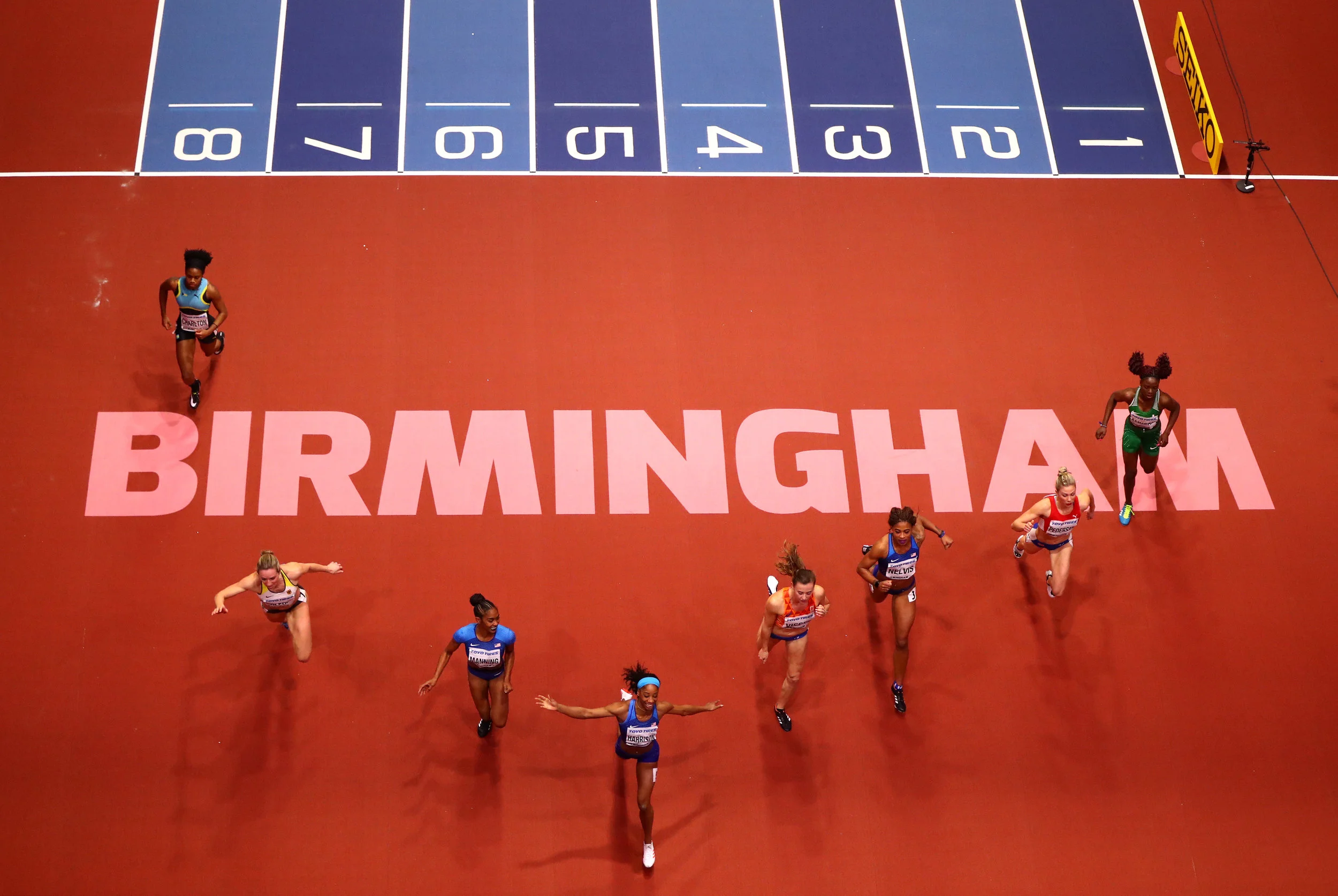BELGRADE, Serbia — There are four big track and field championships this year: world indoors, world outdoors, Commonwealth Games, Europeans. For a sizeable number of top athletes, these world indoors are, for lack of a better description, the baby of the four, the junior rider.
In any year, but particularly this one, it would be rare to see the kind of showdown that took place Saturday night in the marquee event of these world indoors, the men’s 60 meters. In Lane 5, the Tokyo Olympic champion in the 100 meters, Italy’s Lamont Marcell Jacobs. Was his run last summer a fluke? In Lane 3, American Christian Coleman, the 2019 100 world champion, the 2018 60-meter winner, the world record-holder at this distance at 6.34 seconds. He could not challenge Jacobs in Tokyo. He was sitting out, grounded by a whereabouts violation.
Rarer still is the race that lives up to the hype.
This one did.









